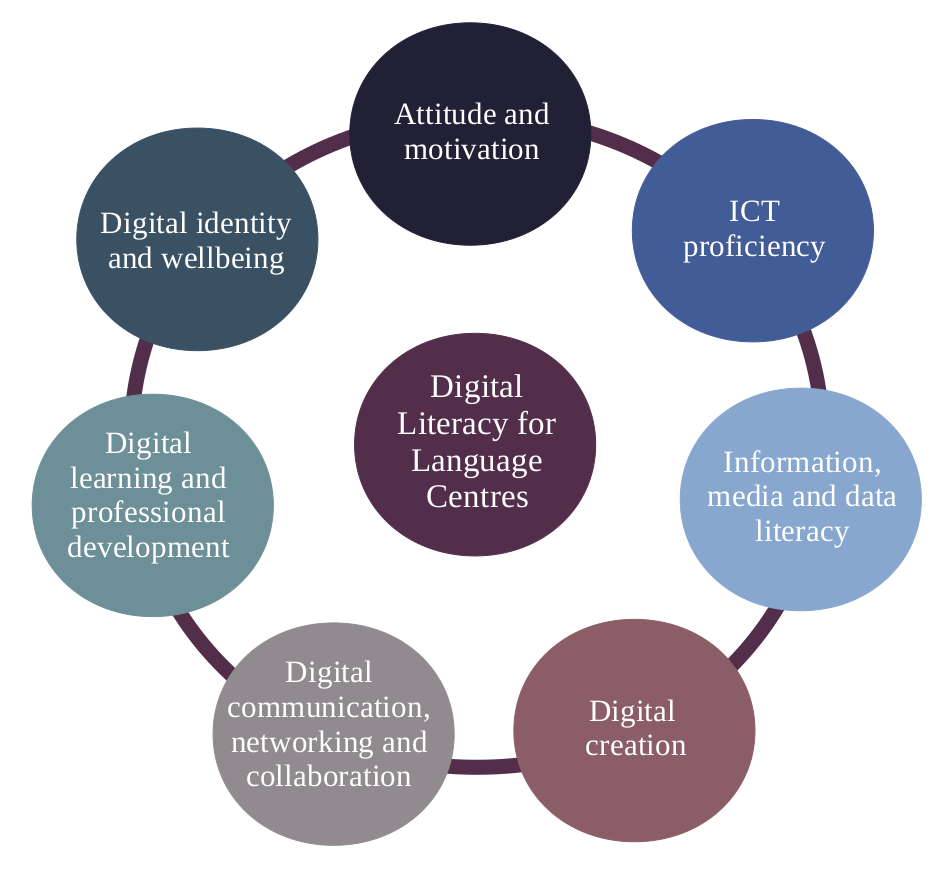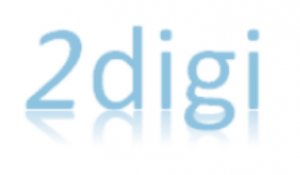Digital literacy: a short definition
Digital literacy in a language centre context means two things:
1. Teachers are able to support student learning in a pedagogically appropriate manner such that they can make use of digital programs and equipment in their teaching, supervision and assessment to benefit students in the acquisition of the academic and working life language and communication skills they need.
2. All staff are willing and able to work, communicate and collaborate with all partners using appropriate digital tools and platforms.
Digital literacy: an extended definition
Based on the work done by Jisc (2012) and our own experience of language centre teaching you can see below the seven key elements that form digital literacy. You can read an article on the original survey (Nelson 2017, pp 115-134) carried out to start this research off here.
Click on each link to find out more about each area.
 Attitude and motivationICT proficiencyDigital literacy for language centreIdentity and wellbeingDigital learningContent creationInformation literacyDigital communication
Attitude and motivationICT proficiencyDigital literacy for language centreIdentity and wellbeingDigital learningContent creationInformation literacyDigital communicationDownload in handy grid (pdf) format all you need to know about Digital Literacy:
The grid gives you a detailed analysis of the seven key skills of digital literacy for teachers in the Language Centre context. For each key skill, you will see a list of example competences teachers may have. The purpose of the grid is to lay out for you the diversity of what digital literacy is and provide you with a tool for initial self-reflection before you take the teacher’s self-evaluation questionnaire provided.
Sources
Jisc Elements. 2012. Building digital capability: Example teacher profile.
URL: https://www.jisc.ac.uk/rd/projects/building-digital-capability

